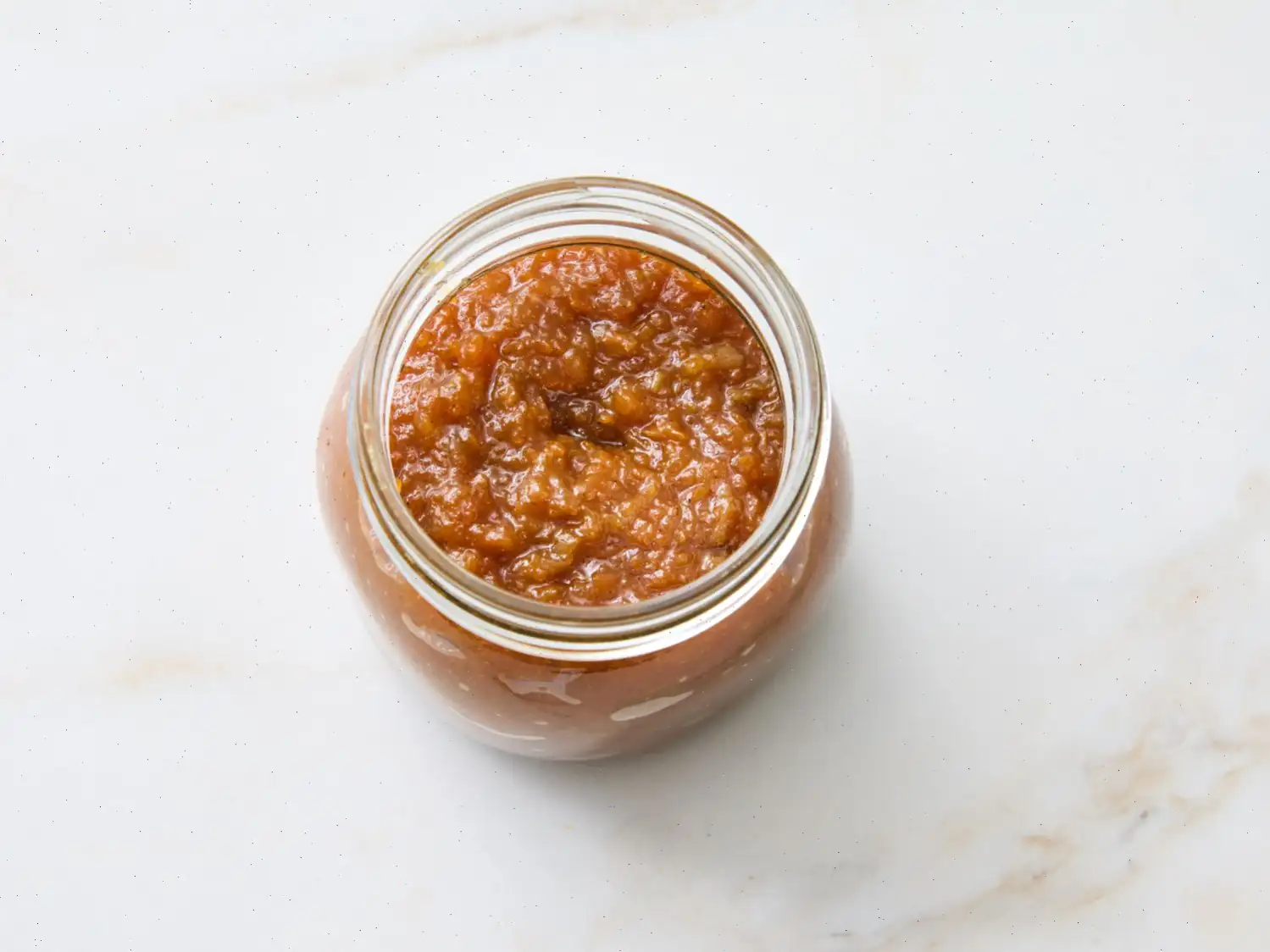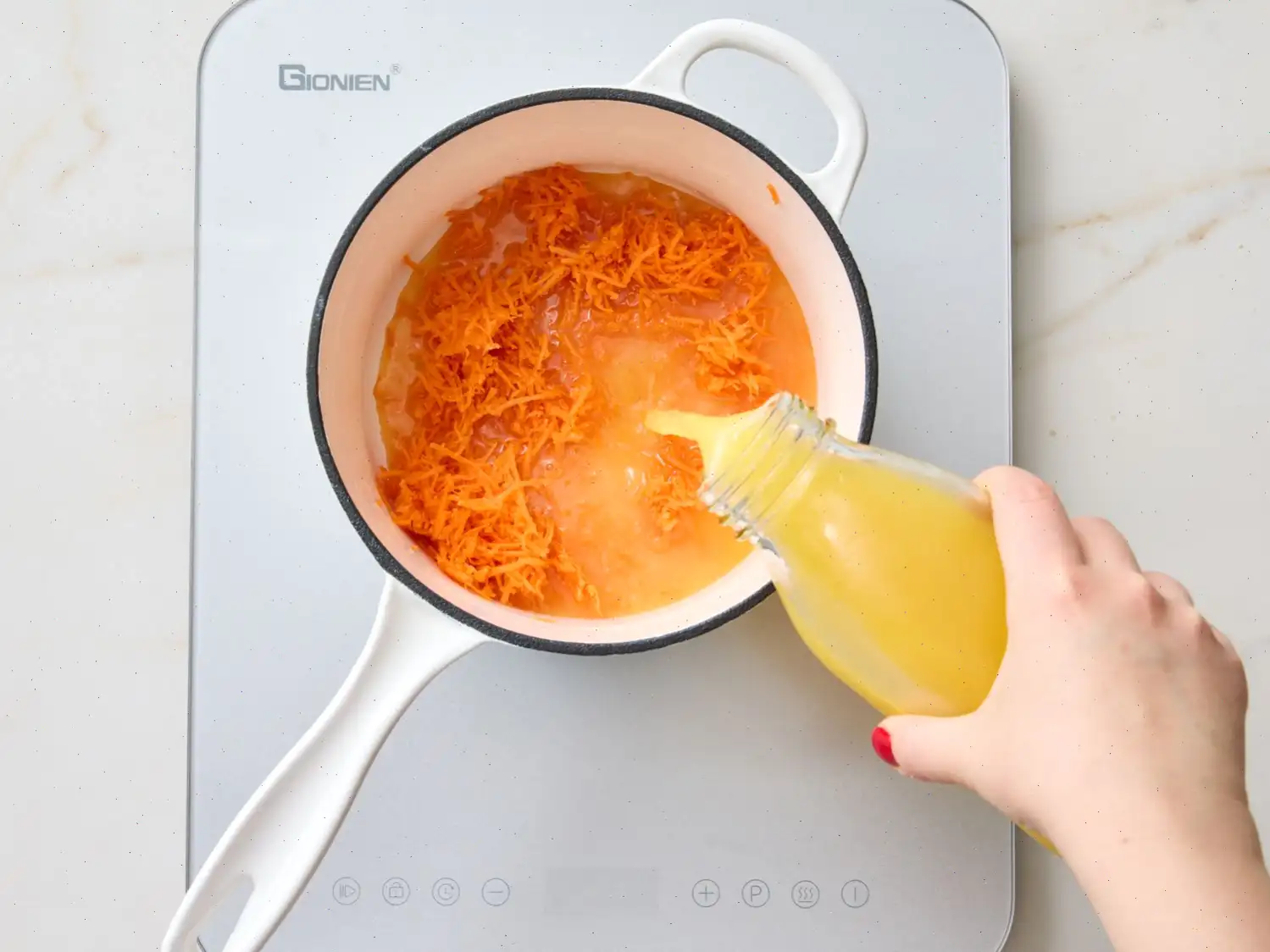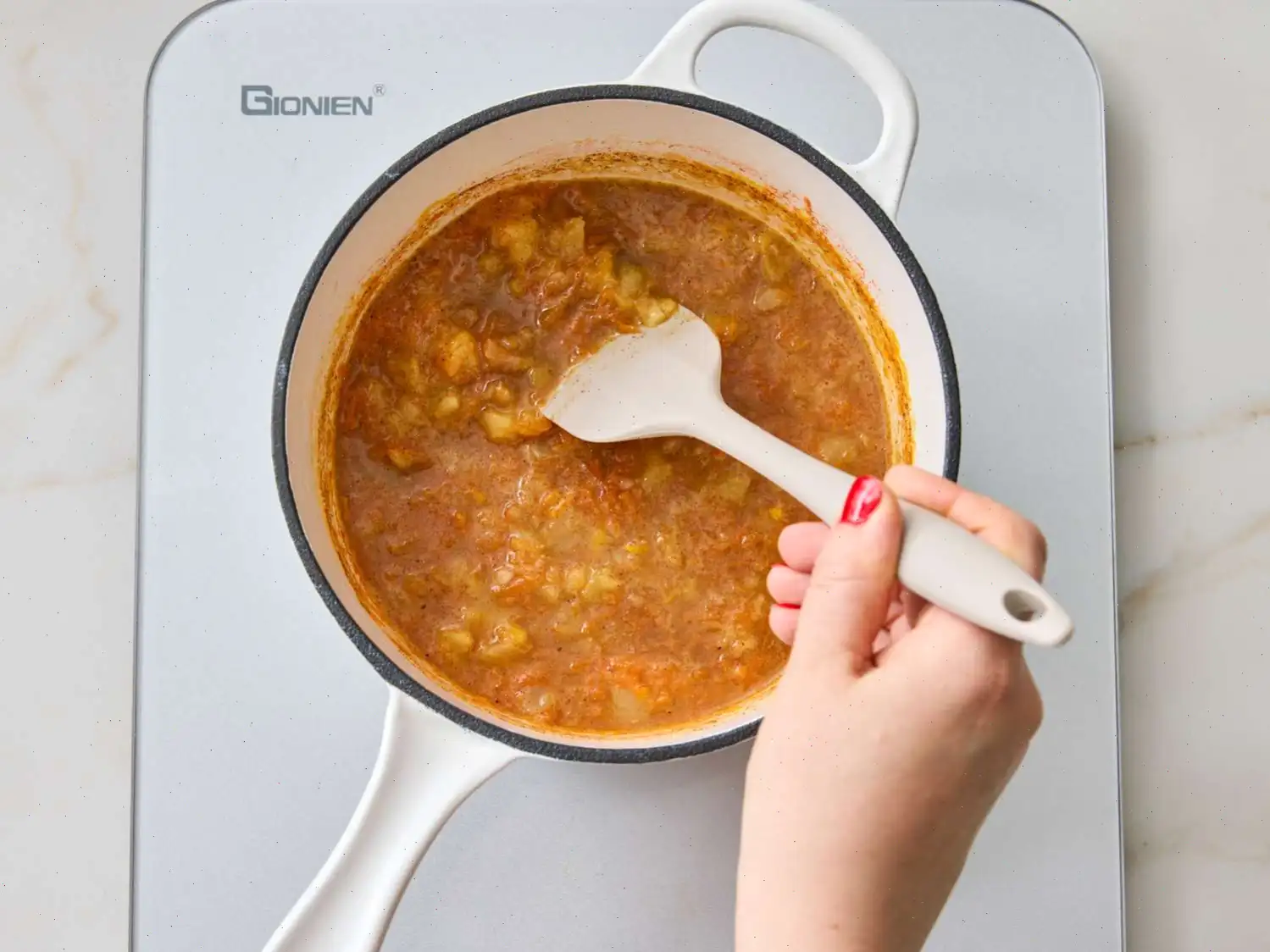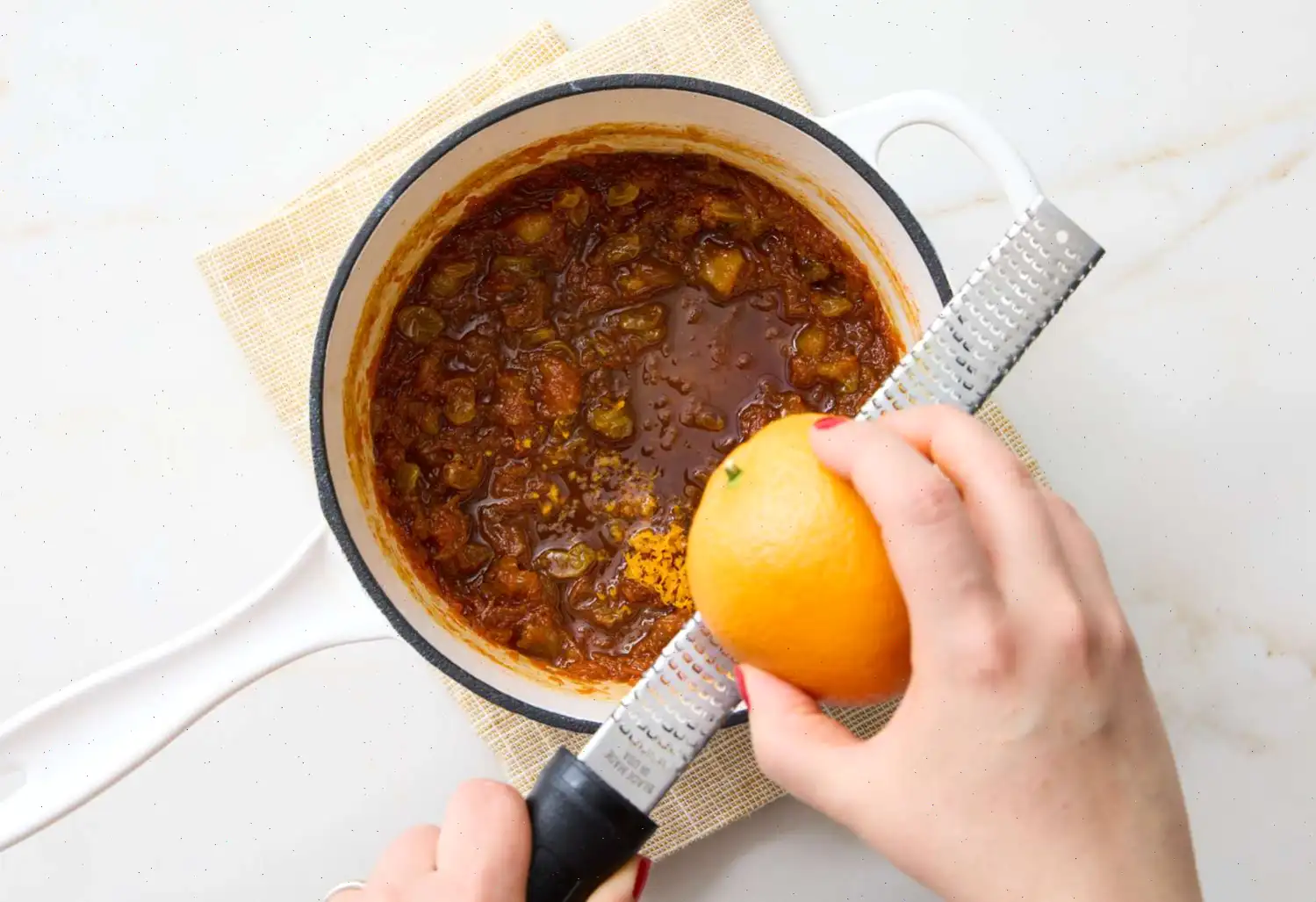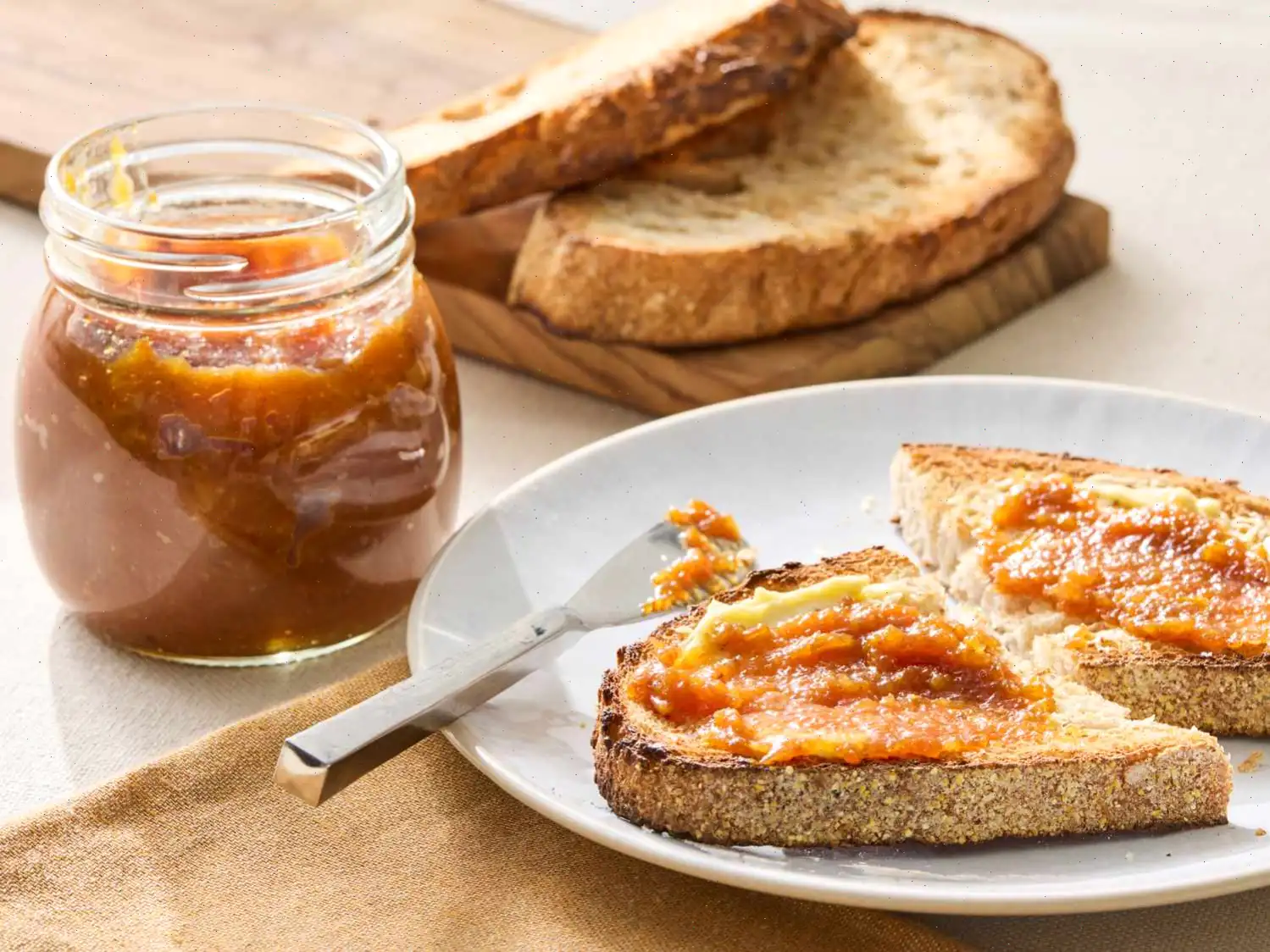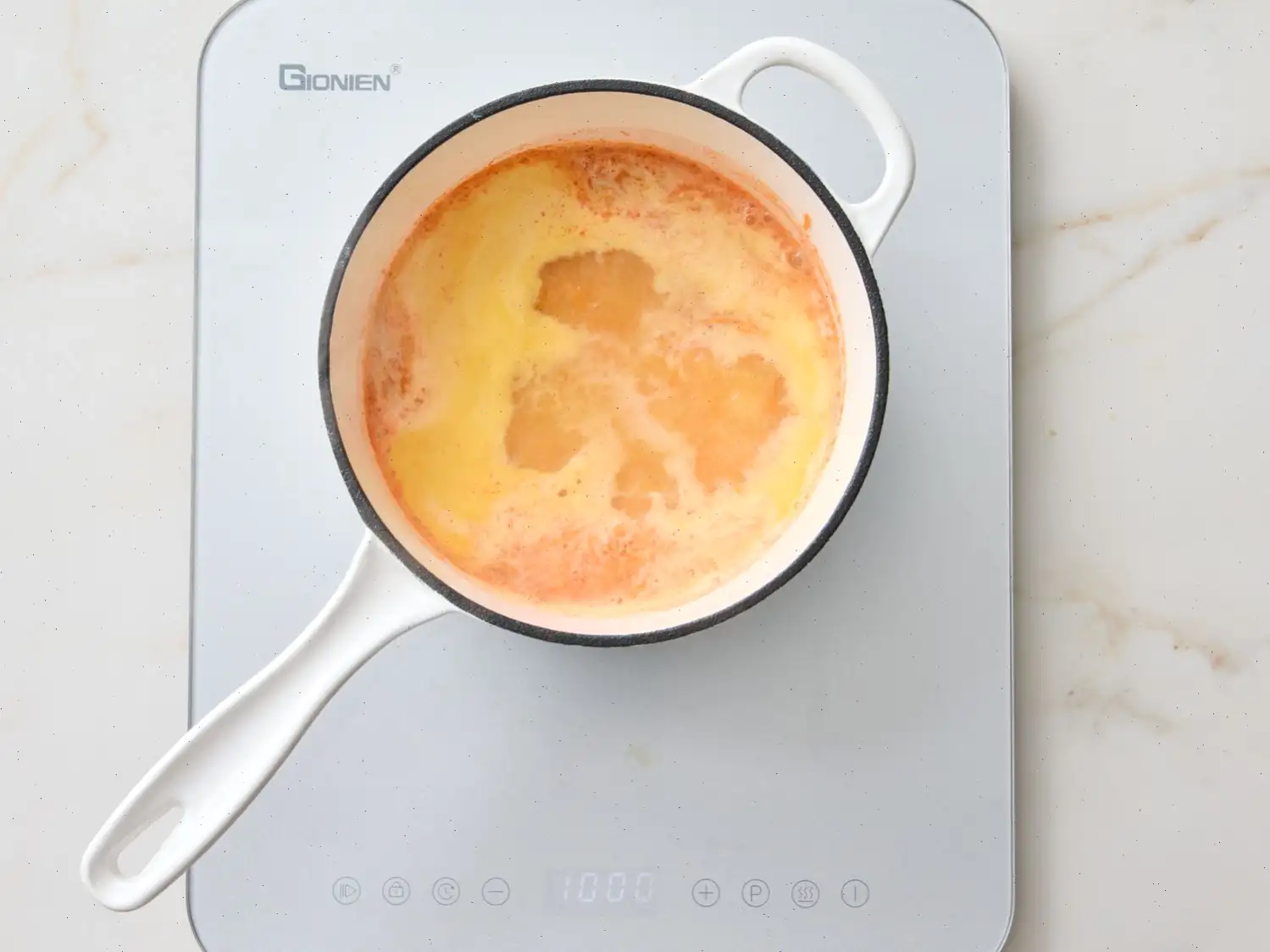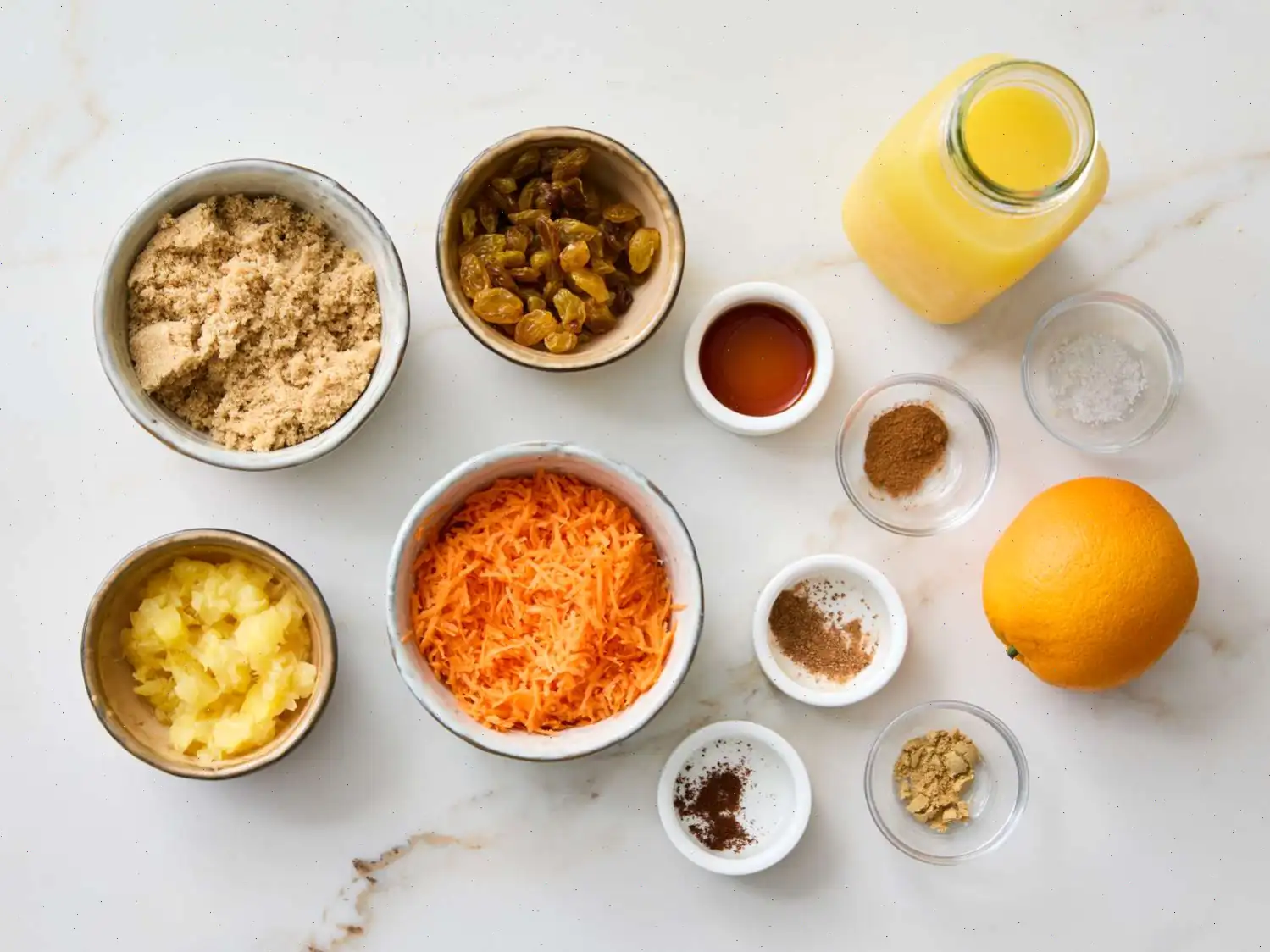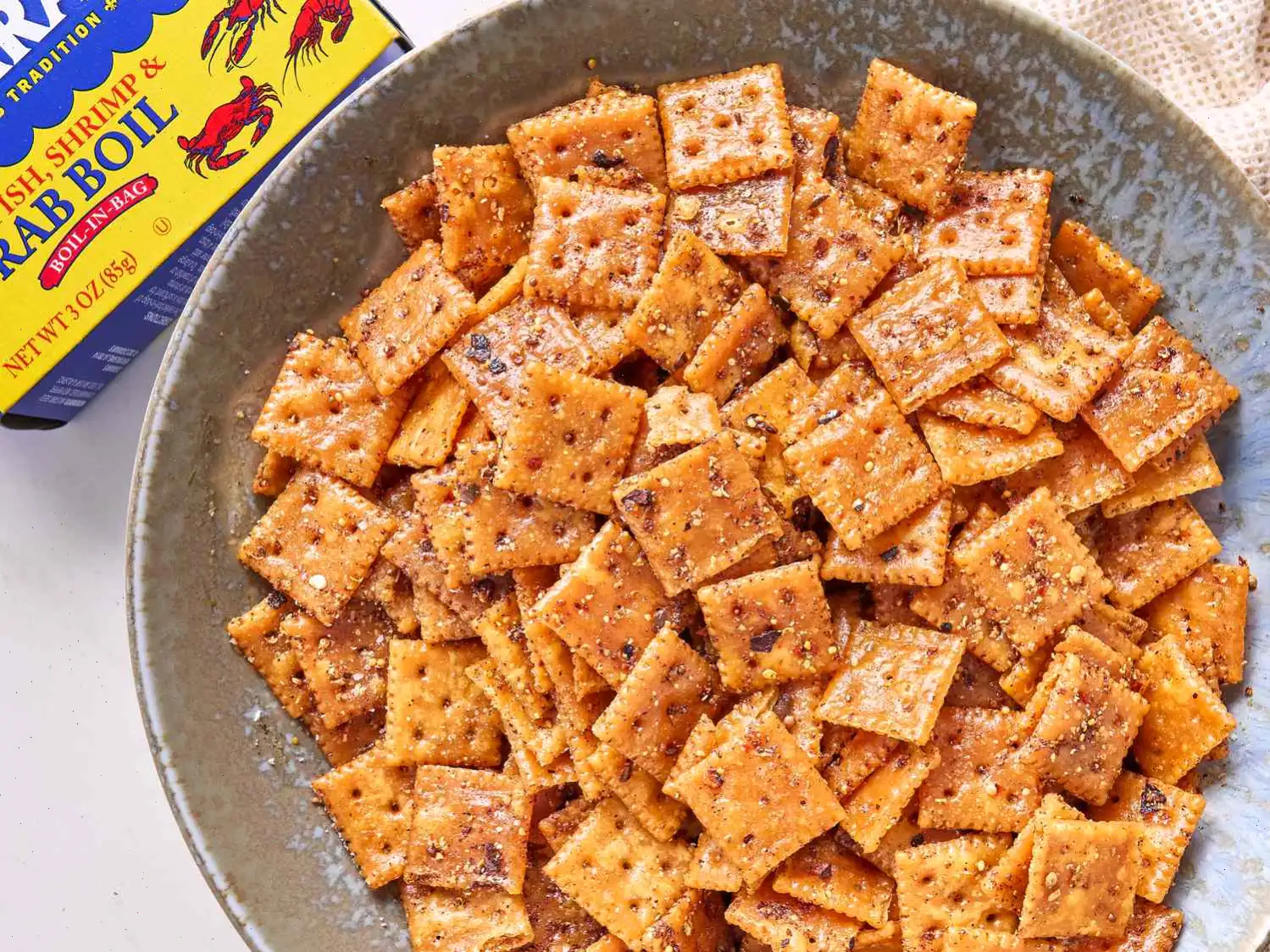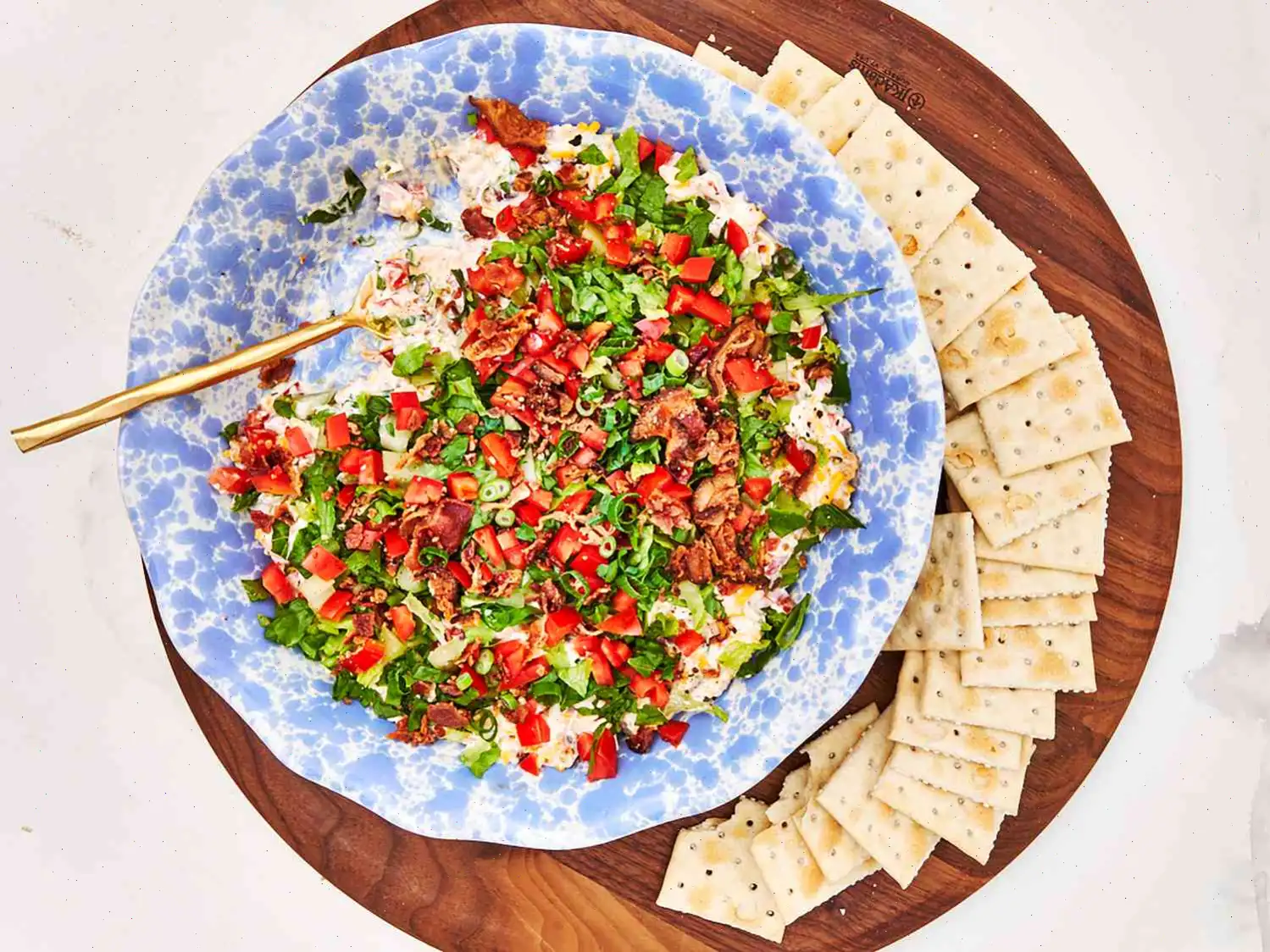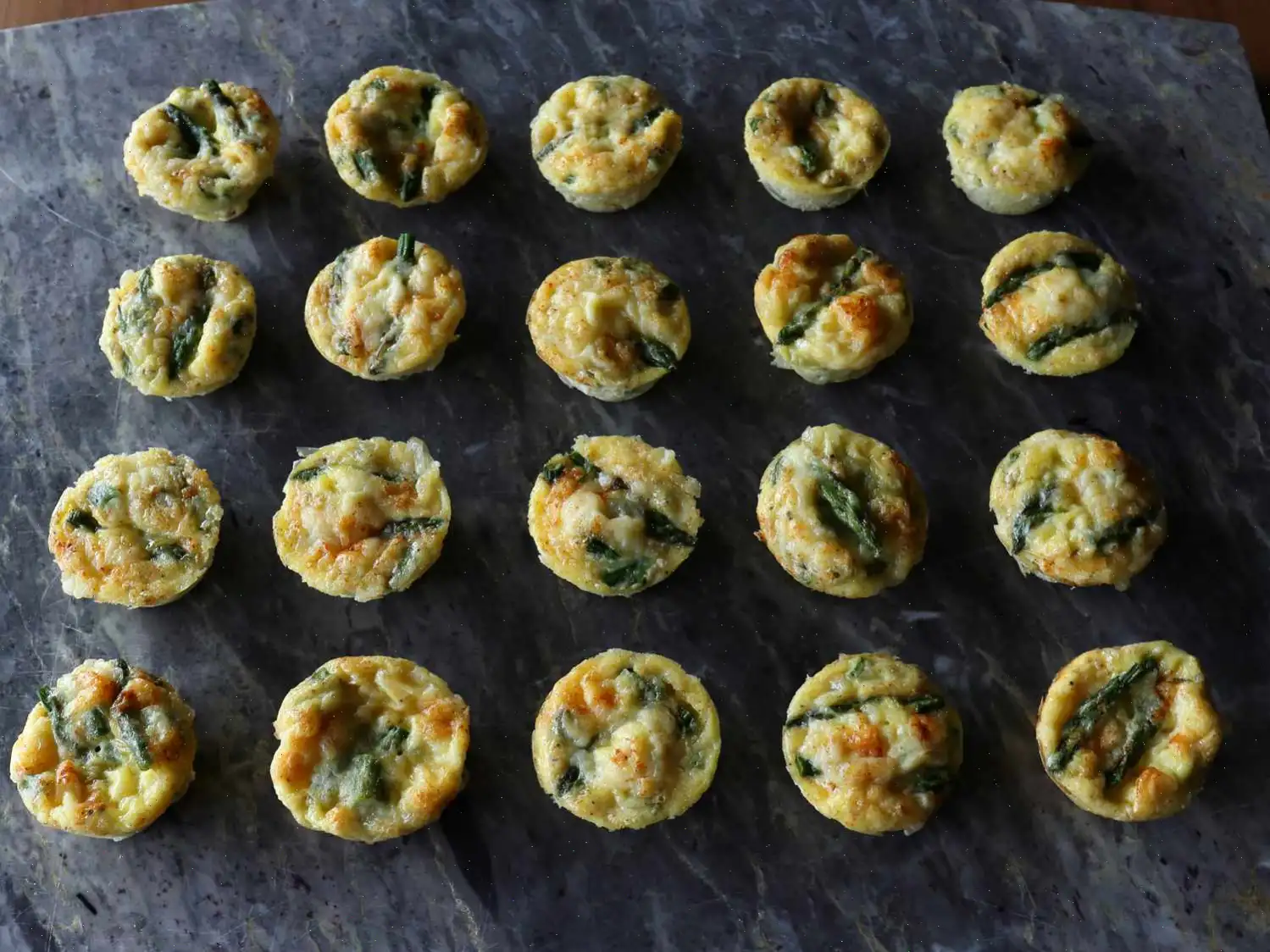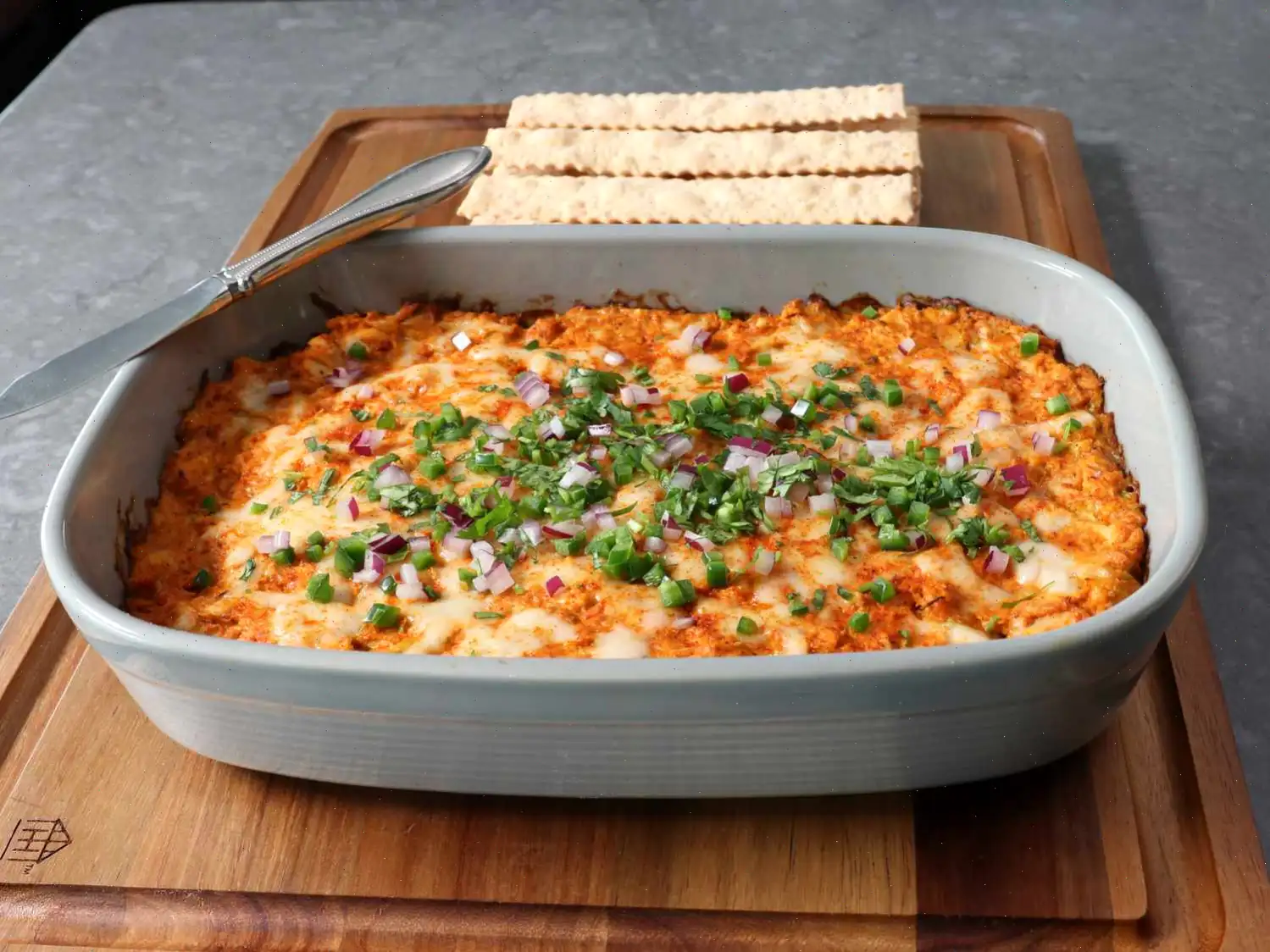
Carrot Cake Spread Recipe
Ingredients
This recipe was developed at its original yield. Ingredient amounts are automatically adjusted, but cooking times and steps remain unchanged. Note that not all recipes scale perfectly.
- 1 cup finely shredded carrots
- 2 cups orange juice
- 1/2 cup packed brown sugar
- 1/3 cup canned crushed pineapple, drained
- 1/3 cup golden raisins
- 1/4 teaspoon ground cinnamon
- 1/4 teaspoon ground ginger
- 1 pinch ground nutmeg
- 1 pinch ground cloves
- 1 pinch salt
- 1 teaspoon vanilla extract
- 1 teaspoon orange zest
Directions
Step 1: Gather all ingredients.
Step 2: Combine carrots and orange juice in a medium saucepan. Bring to a boil over medium-high heat.
Step 3: Reduce heat to medium and simmer, uncovered, until carrots are tender, about 30 minutes.
Step 4: Stir in brown sugar, pineapple, raisins, cinnamon, ginger, nutmeg, cloves, and salt. Continue to simmer, stirring occasionally, until most of the liquid has evaporated, about 20 minutes.
Step 5: Remove from heat and let stand to cool slightly for about 10 minutes.
Step 6: Stir in orange zest and vanilla extract.
Step 7: Add the mixture to a food processor. Cover and process until very finely chopped and the mixture has a spreadable consistency.
Step 8: Spoon the mixture into two half-pint jars. Cover and let it cool completely, about 30 minutes.
Step 9: Chill in the refrigerator for at least 2 hours before serving.
Step 10: Store the spread in the refrigerator for up to 3 weeks or freeze for up to 3 months. If frozen, thaw overnight in the refrigerator before serving.
Nutrition Facts (per serving)
- Calories: 42
- Total Fat: 0g
- Saturated Fat: 0g
- Cholesterol: 0mg
- Sodium: 12mg
- Total Carbohydrate: 10g
- Dietary Fiber: 0g
- Total Sugars: 9g
- Protein: 0g
- Vitamin C: 13mg
- Calcium: 11mg
- Iron: 0mg
- Potassium: 98mg
* Percent Daily Values are based on a 2,000-calorie diet. Your daily values may be higher or lower depending on your calorie needs.
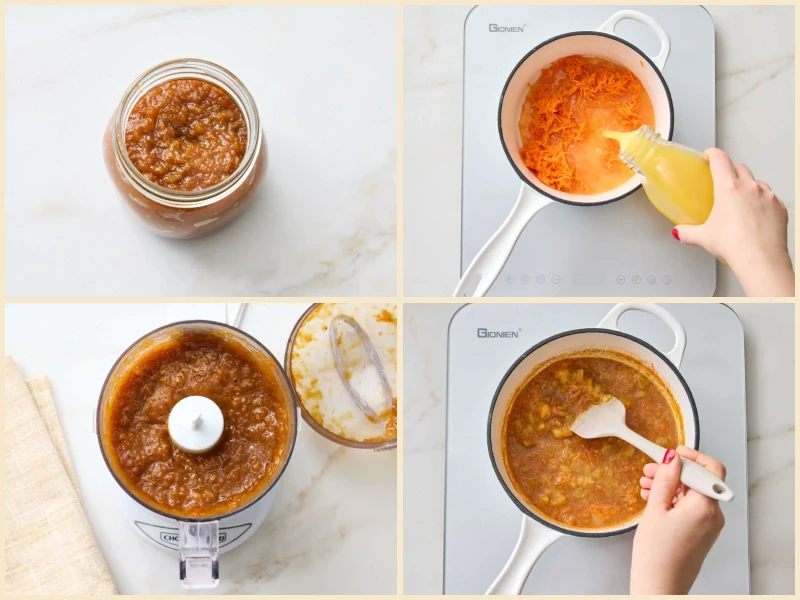

Origin and History
The Carrot Cake Spread is a modern twist on the classic carrot cake, a beloved dessert originating from Europe. Carrot cake itself has historical roots dating back to medieval times when carrots were used in sweet cakes due to their natural sweetness. However, the spread variation, which incorporates finely shredded carrots with a marmalade-like consistency, emerged as a creative alternative to traditional jams and spreads. It is typically made with ingredients that you would find in a carrot cake, such as cinnamon, raisins, pineapple, and nutmeg, making it an innovative way to enjoy the flavors of carrot cake without the cake itself.
Regional Variations
While the carrot cake spread recipe has become popular in various regions of the United States, it is particularly common in the Southeast, where carrot cake itself is a staple dessert. The addition of tropical ingredients like pineapple and raisins adds a unique flair, often influenced by the warmer, more fruit-forward tastes of the region. In contrast, the classic carrot cake is often more associated with the colder months and celebratory occasions like Easter. The spread form makes it a versatile accompaniment, great for breakfast or as an appetizer on charcuterie boards.
Differences from Similar Dishes
Carrot cake spread stands out from similar dishes like fruit preserves, marmalades, and other cake-inspired spreads due to its texture and flavor profile. Unlike traditional marmalade, which is citrus-based, the carrot cake spread incorporates earthy and sweet carrots, giving it a heartier consistency and a distinctly spiced flavor. Additionally, the use of pineapple and golden raisins in this spread offers a level of sweetness and moisture that sets it apart from other jams, making it a delightful pairing with both sweet and savory dishes.
Where Its Typically Served
This spread is a versatile treat that can be served in a variety of settings. Its most commonly found on breakfast tables as a topping for toast or oatmeal, adding a delicious, spice-infused twist to your morning routine. Its spreadable consistency also makes it a great addition to a charcuterie board, where it can be paired with cheeses, crackers, or even used as a filling for pastries. Its an excellent choice for brunch gatherings or casual snack sessions. In addition, its often served as an appetizer or a unique side at holiday dinners, adding a touch of sweetness to balance savory dishes.
Fun Facts
- Carrots have been used in sweet dishes since medieval times, long before they became popular in savory dishes.
- The use of pineapple in the spread not only adds sweetness but also helps with preserving the spread, extending its shelf life when refrigerated.
- Carrot cake itself became popular in the United States during the 1960s, likely influenced by the health food movement that embraced the natural sweetness of carrots.
- This spread is a great alternative for those who want to enjoy the flavors of carrot cake without the calories of cake itself.
- It can be stored in the fridge for up to three weeks or frozen for up to three months, making it a convenient option to prepare in advance.
The Carrot Cake Spread is a fun, flavorful, and versatile dish that is sure to delight anyone who loves the classic flavors of carrot cake. Whether you enjoy it on toast, oatmeal, or as part of a charcuterie spread, its an excellent way to bring a new twist to traditional flavors.


